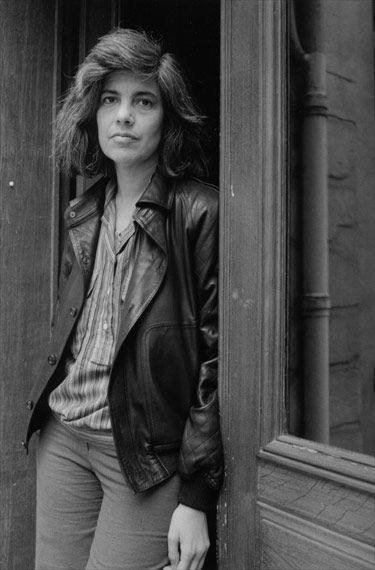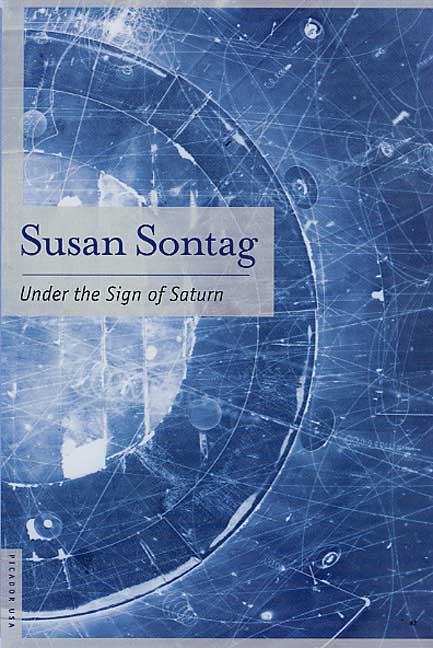This book review, which I’ve alluded to previously on this site, appeared in the November 2, 1980 issue of The Soho News. —J.R.
Under the Sign of Sontag


Under the Sign of Saturn
By Susan Sontag
Farrar, Straus & Giroux, $10.95

If, dialectically speaking, every book can be said to have an unconscious — a repressed subtext — one can find glimpses of the unconscious of this one in the misleading flap copy that quotes from an interview (“Women, the Arts, and the Politics of Culture,” Salmagundi 31-32) and mentions the inclusion of a “famous exchange on fascism and feminism” (apparently with Adrienne Rich, in the March 20, 1975 New York Review of Books), both regrettably missing from this slim volume of seven essays.
These omissions betray the absence of a gritty, indecorous social context — a sense of Sontag existing in the world, not merely staging grand Platonic shadow-plays in the theater of her mind. Much as Illness as Metaphor (1978) was partially structured around her refusal to allude once to her own personal struggle, this book discreetly, indirectly dances around the notion that the subject of every essay proposes a different kind of mirror to the author, a speculative self-portrait. Read more

After Jacques Rivette’s 750-minute comic serial Out 1 (1971) was turned down by French state TV, Rivette spent most of a year editing the material into this scary 255-minute masterpiece—not so much a digest as a different film with its own style and rhythms. Spectre (1972) tells the same basic story about two Parisian theater groups preparing Aeschylus plays and two eccentric loners, a middle-class deaf-mute (Jean-Pierre Leaud) and a working-class flirt (Juliet Berto), who stumble upon evidence of a secret group that hopes to control Paris. The actors created their own characters and dialogue; what emerges is a strange mix of bravura acting styles, an unforgettable evocation of the period, and a haunting puzzle. With Francoise Fabian, Bernadette Lafont, Michel Lonsdale, and Bulle Ogier. In French with subtitles. Showing in a 35-millimeter restoration with a 15-minute intermission. Sat 6/9, 3 PM, Gene Siskel Film Center. Read more

My favorite Pedro Costa feature to date, an inviting “Open, sesame” to all his work, is his second (1994), a very personal remake of Jacques Tourneur’s I Walked With a Zombie (1943). It follows an obscurely motivated Lisbon nurse (Ines de Medeiros) accompanying a construction worker in a coma (Isaach de Bankolé) back to his native village, on a spectacular volcanic island in Cape Verde, once a hub of the slave trade. (The film’s original and much better title is “Casa de Lava,” or “House of Lava”). While she waits for him to wake she gets to know some of the villagers, including another European (the terrific Edith Scob) who unlike her has succeeded in going native. Gorgeously shot, with fabulous Creole music, this mysterious and voluptuous spiritual adventure has afforded me far more pleasure than any new film I’ve seen this year. In Portuguese and Creole with subtitles. 110 min.
 Read more
Read more






